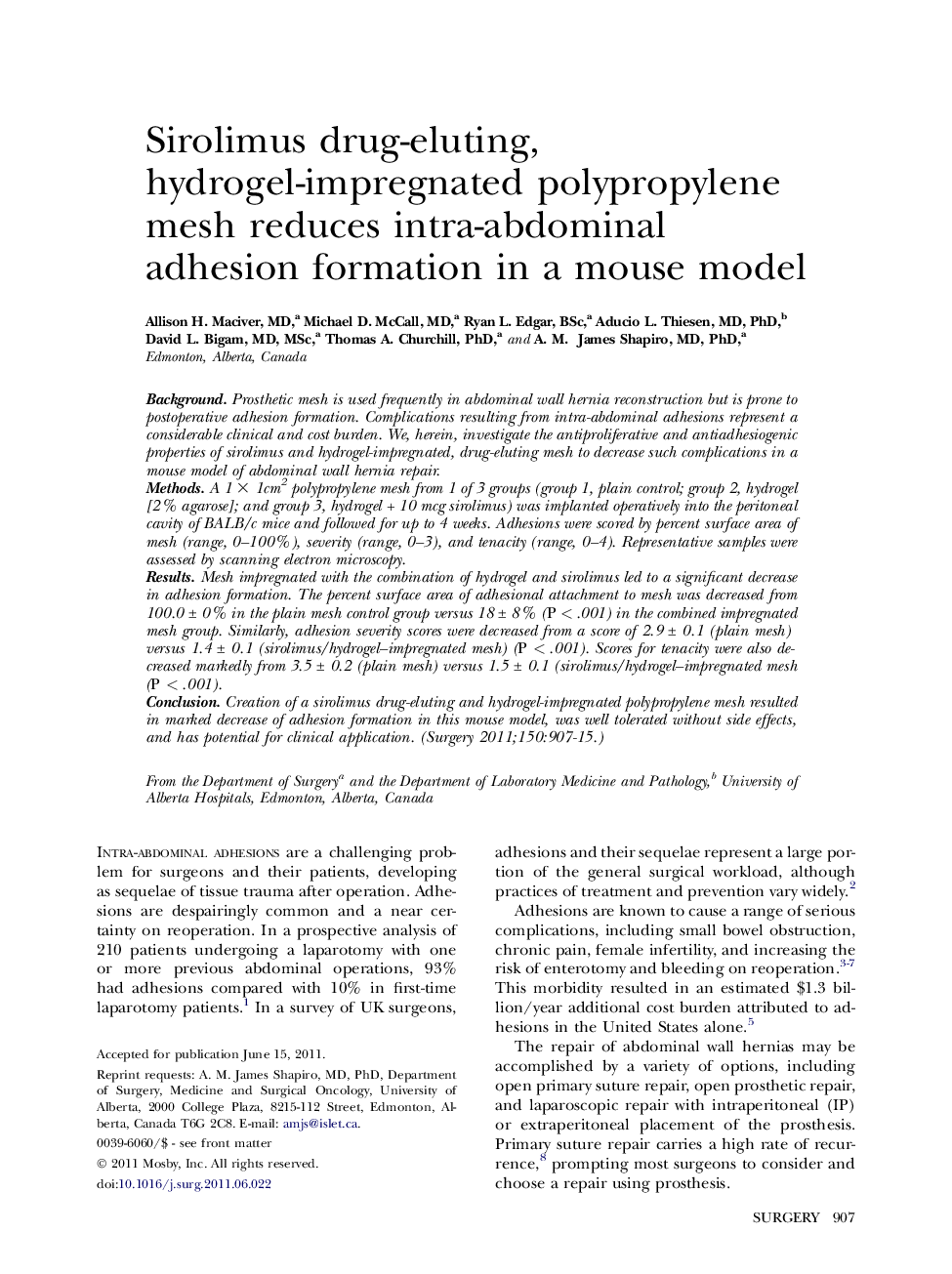| Article ID | Journal | Published Year | Pages | File Type |
|---|---|---|---|---|
| 4307889 | Surgery | 2011 | 9 Pages |
BackgroundProsthetic mesh is used frequently in abdominal wall hernia reconstruction but is prone to postoperative adhesion formation. Complications resulting from intra-abdominal adhesions represent a considerable clinical and cost burden. We, herein, investigate the antiproliferative and antiadhesiogenic properties of sirolimus and hydrogel-impregnated, drug-eluting mesh to decrease such complications in a mouse model of abdominal wall hernia repair.MethodsA 1 × 1cm2 polypropylene mesh from 1 of 3 groups (group 1, plain control; group 2, hydrogel [2% agarose]; and group 3, hydrogel + 10 mcg sirolimus) was implanted operatively into the peritoneal cavity of BALB/c mice and followed for up to 4 weeks. Adhesions were scored by percent surface area of mesh (range, 0–100%), severity (range, 0–3), and tenacity (range, 0–4). Representative samples were assessed by scanning electron microscopy.ResultsMesh impregnated with the combination of hydrogel and sirolimus led to a significant decrease in adhesion formation. The percent surface area of adhesional attachment to mesh was decreased from 100.0 ± 0% in the plain mesh control group versus 18 ± 8% (P < .001) in the combined impregnated mesh group. Similarly, adhesion severity scores were decreased from a score of 2.9 ± 0.1 (plain mesh) versus 1.4 ± 0.1 (sirolimus/hydrogel–impregnated mesh) (P < .001). Scores for tenacity were also decreased markedly from 3.5 ± 0.2 (plain mesh) versus 1.5 ± 0.1 (sirolimus/hydrogel–impregnated mesh (P < .001).ConclusionCreation of a sirolimus drug-eluting and hydrogel-impregnated polypropylene mesh resulted in marked decrease of adhesion formation in this mouse model, was well tolerated without side effects, and has potential for clinical application.
